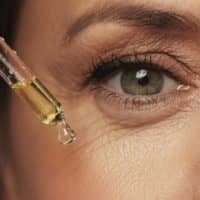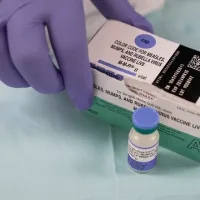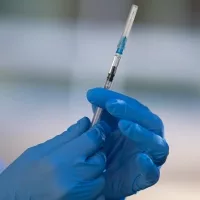
(NEW YORK) — The skin care ingredient retinol has been receiving a lot of attention lately, especially on social media apps like TikTok.
But what does retinol actually do and should you be using it?
According to the Journal of America Academy of Dermatology: “retinoids, chemicals that have vitamin A activity, have become important therapeutic agents for a variety of cutaneous disorders, including acne.”
Below, dermatologist Dr. Whitney Bowe answers five questions about retinol.
1. What is retinol?
“Retinol is an over-the-counter form of topical vitamin A. It is one of the most researched and effective skin care ingredients that you can use without getting a prescription.
In fact, retinol is considered by many dermatologists and experts in skin health to be the gold standard in terms of ingredients that deliver clinically evident results and lead to healthier skin.
Retinol can increase skin cell turnover, boost collagen production over time, regulate oil production, even out skin texture, and help brighten dark spots on the skin resulting in a more even skin tone. It can even help fight acne and brighten those dark marks left over after acne pimples go away (post inflammatory hyperpigmentation).”
2. Should you be using retinol?
“Anyone looking to smooth out wrinkles, smooth skin texture, minimize the appearance of pores, or brighten skin can use retinol.
I do not recommend that pregnant women, or women who are breastfeeding, use retinol.
I also advise my patients with eczema or rosacea flares to hold off on retinol until their skin is under better control. Then, they can reintroduce this ingredient, but slowly and carefully.”
3. How do you use retinol?
“I recommend what I call ‘skin care cycling,’ which means cycling on and off powerful but potentially irritating ingredients like retinol.
I usually recommend that my patients start using a pea-sized amount once every fourth night.
If their skin is tolerating it well after a few weeks (no stinging, burning, redness, flaking) then they can graduate to every third night.”
4. Is retinol a new ingredient?
“It’s definitely not new! It’s finally getting the attention it deserves, though.
People are more skin savvy than ever these days, and I believe that dermatologists like myself, taking a more active role on social media, is playing a large role in that evolution.
I’m personally blown away by the sophisticated questions I get about skin care ingredients on my TikTok and Instagram channels. My social media followers are incredibly informed, and demand science-backed, scientifically proven recommendations from me, which I love!”
5. What should you look for when purchasing retinol products?
“Studies, studies, studies. Reputable brands will take the time to put their final formulations to the test in clinical studies.
Just because an ingredient performs well in a test tube doesn’t mean it will translate into meaningful results on someone’s skin.
Furthermore, especially with retinol, it’s not just about that single ingredient or what percentage that ingredient is being used in the product. You must also look at studies done on the final formula. Results from the formula should be greater than the sum of its parts.
Retinol can be unstable, or irritating. However, when formulated by someone who really understands the ingredient and how it will ‘play’ with other ingredients in the cream, gel, or lotion, that’s when you can see beautiful results and minimize side effects.”
Copyright © 2021, ABC Audio. All rights reserved.














